News archive 2018
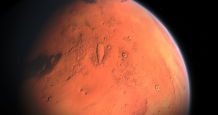
Experts tackle Mars settlement problems
Ugly interior design, interplanetary “jetlag” and personality clashes are among the problems hampering humanity’s efforts to settle on Mars, experts say.

What if global warming passes 1.5°C?
What will happen if humanity fails to limit global warming to 1.5°C?
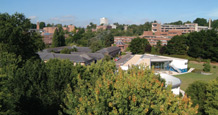
Exeter research ranked among the most influential of 2018
Research conducted by Exeter experts has been recognised amongst the top 100 influential in 2018.

Turning climate change from a ‘tragedy of the commons’ to positive action
Climate change must no longer be viewed as a “tragedy of the commons”, researchers say.

Asylum hearing help from new video
People seeking asylum will be helped to prepare for appeal hearings by a new video created by experts from the University of Exeter and Asylum Aid.

New explainer videos for Antarctic climate change game
A popular game which demonstrates the impact of climate change in Antarctica now has an exciting new feature – explainer videos, narrated by the penguin characters from the game.

University of Exeter team pioneers virtual field trips in 3D
3D gaming technology is being used by a team from the University of Exeter to take students and researchers on virtual field trips to the Arctic Circle.

Free movement can protect humans from environmental threats
Greater freedom of movement and investments in human rights and social opportunities can help protect humans from environmental threats like rising sea levels, new research says.
_feat_218x115.jpg)
Public must help shape ‘smart cities’
The public must play a key role in the ongoing “smart cities” revolution, researchers say.

Asian hornets: First UK use of radio tags to find nest
Electronic radio tags have been used for the first time on the UK mainland to help find a nest of invasive Asian hornets, which was then destroyed.

Why reformed A levels are not preparing undergraduates for university study
Matt Finn, Lecturer in Human Geography at the University of Exeter, writes for the Conversation UK

Jeremy Corbyn was once a high-profile opponent of nuclear power – what happened?
Bridget Woodman, Senior Lecturer and Deputy Director of Energy Policy Group at the University of Exeter, writes for the Conversation UK

Warmer springs can reduce summer plant productivity
Warmer springs are leading to substantially reduced plant productivity across the Northern hemisphere in the later months of the year, a new study has revealed.

Famous theory of the living Earth upgraded to ‘Gaia 2.0’
A time-honoured theory into why conditions on Earth have remained stable enough for life to evolve over billions of years has been given a new, innovative twist.

Peatlands will store more carbon as planet warms
Global warming will cause peatlands to absorb more carbon – but the effect will weaken as warming increases, new research suggests.
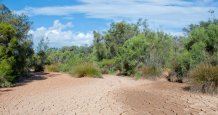
Drought increases CO2 concentration in the air
The concentration of CO2 in the atmosphere rises faster during drier years because struggling ecosystems absorb less carbon, new research shows.

Scientists unravel history of lost harbour of Pisa
New insights into the evolution and eventual disappearance of Portus Pisanus, the lost harbour of Pisa, have been revealed.

The bright ways forests affect their environment
Why do forests emit the gases that give pine forests their distinctive smell? Scientists think they've found out.

Forests crucial for limiting climate change to 1.5 degrees
Trying to tackle climate change by replacing forests with crops for bioenergy power stations could increase the amount of CO2 in the atmosphere.

Beavers arrive in the Forest of Dean
A pair of Eurasian Beavers will return to the Forest of Dean today (24 July) for the first time for about 400 years.

Scientists propose solution to ‘Gaia puzzle’
Scientists may have solved a puzzle over why conditions on Earth have remained stable enough for life to evolve.

New Exeter institute to tackle ‘global challenges’
How can our planet and its people flourish as the human population reaches an estimated 9-11 billion?

Climate predictions should include impacts of CO2 on life
Climate change predictions are not taking account of the full range of possible effects of rising carbon dioxide

Major new project to understand public attitudes and community responses to shale gas in the UK
A new research project led by academics at Exeter, Stirling and Cardiff universities will shed light on how public responses to shale gas unfold over time at national, regional and local levels.

Coral reefs losing ability to keep pace with sea-level rise
Many coral reefs will be unable to keep growing fast enough to keep up with rising sea levels, new research suggests.

Professor wins environment award
Professor Richard Brazier has won the Pride of Devon Environment award for his work

Invisible barrier on ocean surface can reduce carbon uptake
An invisible layer of biological compounds on the sea surface reduces the rate at which carbon dioxide gas moves between the atmosphere and the oceans, scientists have reported.

Beavers do dam good work cleaning water, research reveals
Beavers could help clean up polluted rivers and stem the loss of valuable soils from farms, new research shows.
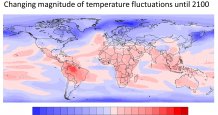
Temperature swings to hit poor countries hardest
Temperature fluctuations that are amplified by climate change will hit the world’s poorest countries hardest, new research suggests.

Exeter expert part of international team investigating massive Antarctic glacier collapse
A University of Exeter academic is part of an international team of experts working to discover how quickly a massive Antarctic glacier could collapse.
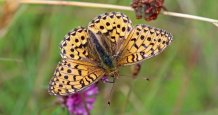
Microclimates may provide wildlife with respite from climate change
Sheltered pockets of cooler and more variable conditions in the British countryside may help native species
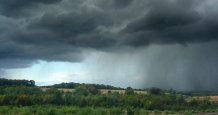
Climate change could raise food insecurity risk
Weather extremes caused by climate change could raise the risk of food shortages in many countries, new research suggests.

Met Office Visit Day
Sixty Five Geography students from Streatham and Penryn campuses recently travelled to the Met Office headquarters in Exeter for an immersion day.

Oxygen loss could be a huge issue for oceans
A major study into an ancient climate change event that affected a significant percentage of Earth’s oceans has brought into sharp focus a lesser-known villain in global warming: oxygen depletion.

Exeter University Geography host a Mapathon to celebrate GIS day
Exeter Geography teams up with British Red Cross to host a Mapathon at University of Exeter, helping to put vulnerable regions on the map.

Coral Reefs are in trouble - how can people adapt?
An international team of scientists has developed a strategy to boost people’s ability to adapt to climate change, revealed in a new study published in Nature Climate Change.
